Learn English
Speak Confidently: English for Hospitality Guests
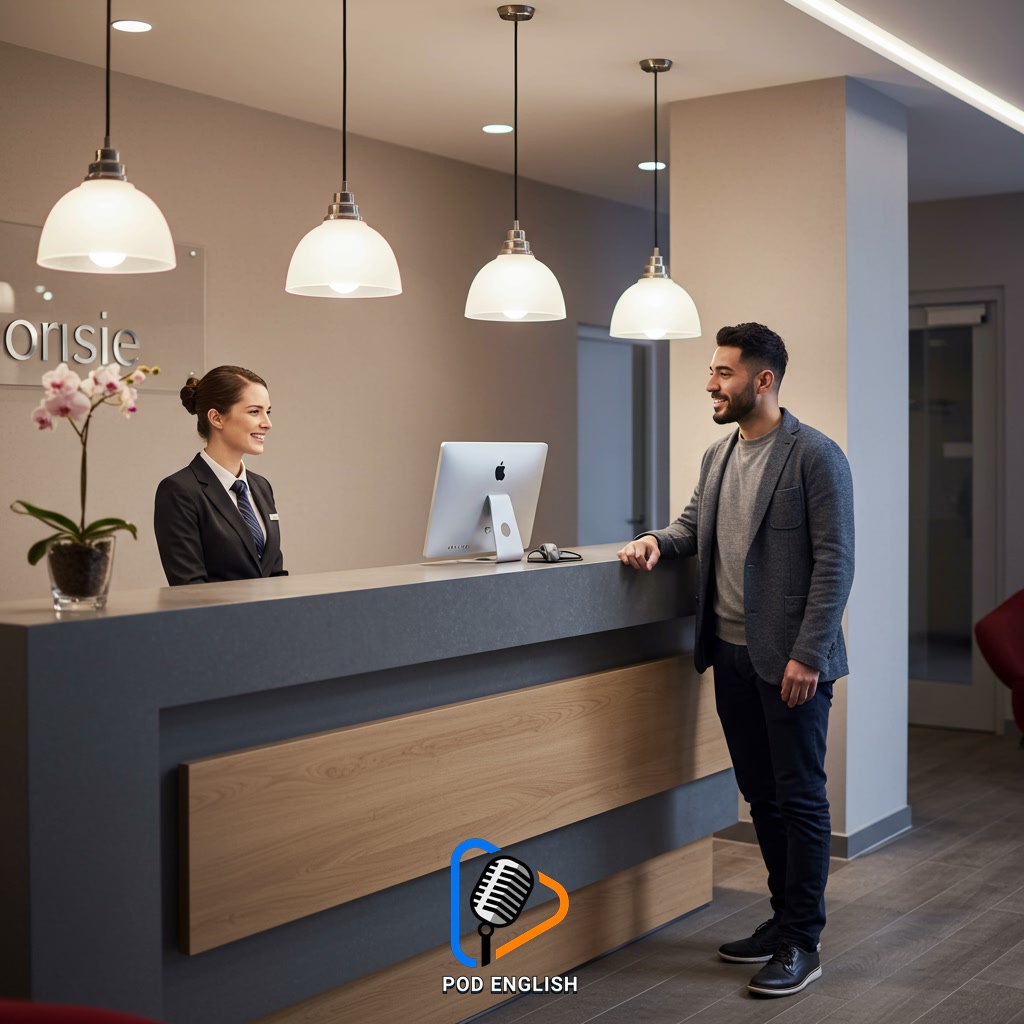
This content focuses on improving English communication skills specifically for individuals working in the hospitality sector. It aims to empower staff to interact confidently and effectively with international guests. By mastering key phrases and conversational techniques tailored to guest interactions, users can enhance service quality and provide a welcoming experience. The material provides practical language tools essential for successful communication in hospitality settings.
Table of Contents
- Section 1: The Importance of English Proficiency in Hospitality
- Section 2: Essential English Vocabulary and Phrases for Guest Communication
- Section 3: Handling Common Scenarios: Check-in, Services, and Requests
- Section 4: Addressing Guest Issues and Complaints Professionally
- Section 5: Strategies for Learning and Improving Your English Skills
- Section 6: Building Confidence to Speak English Naturally with Guests
Section 1: The Importance of English Proficiency in Hospitality
In the globalized world of hospitality, English proficiency is not just an advantage; it’s a fundamental necessity. Working with international guests requires clear and effective communication to understand their needs, answer questions, and resolve issues promptly. When hospitality staff can communicate confidently in English, it significantly enhances the guest experience, making visitors feel welcomed, understood, and valued. This leads to higher guest satisfaction, positive reviews, and repeat business. Furthermore, strong English skills empower staff, boosting their confidence and opening up opportunities for career advancement within the industry. Mastering English vocabulary and phrases relevant to hotel or restaurant settings is a crucial step in providing excellent service and excelling in a hospitality career.
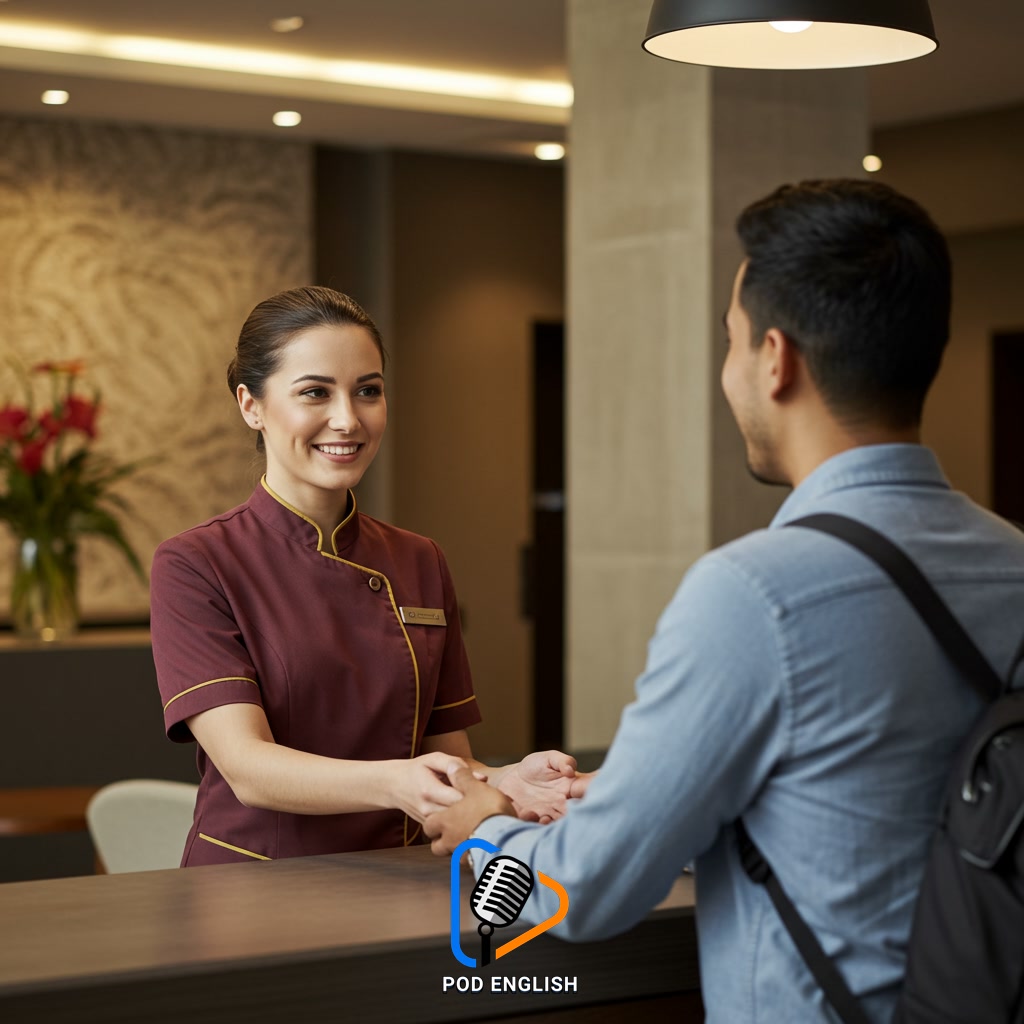
The Importance of English Proficiency in Hospitality
Section 2: Essential English Vocabulary and Phrases for Guest Communication
Building upon the crucial foundation of English proficiency in hospitality, this section delves into the specific language tools essential for confident guest communication. Effective interaction hinges on mastering key vocabulary and practical phrases tailored to common scenarios encountered daily. This includes terms for room types, hotel facilities, services offered, and handling typical guest requests or inquiries. Learning how to ask for and provide information clearly, offer assistance politely, and respond appropriately to feedback are vital skills. By acquiring this targeted vocabulary and practicing essential conversational patterns, hospitality professionals can significantly enhance their ability to understand guest needs, express themselves accurately, and deliver exceptional service, making interactions smoother and more positive for both staff and visitors.
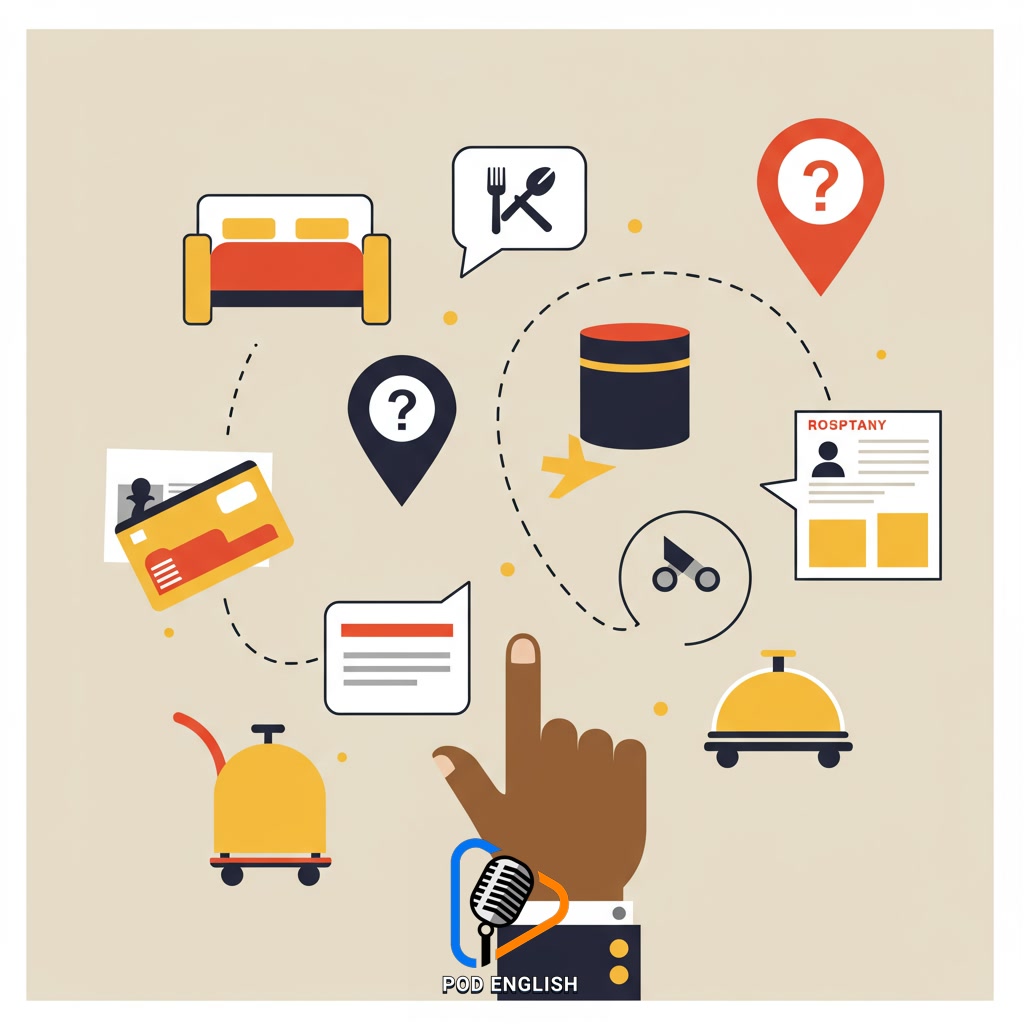
Essential English Vocabulary and Phrases for Guest Communication
Section 3: Handling Common Scenarios: Check-in, Services, and Requests
Building upon your foundational English skills, this section focuses on applying them in the most frequent guest interactions within the hospitality sector. You will learn essential phrases and conversational strategies for confidently handling the check-in process, providing information about hotel services like Wi-Fi, dining options, and facilities, and efficiently managing various guest requests, from extra amenities to local recommendations. Mastering these practical scenarios ensures smooth communication, enhances guest satisfaction, and helps you deliver exceptional service, reinforcing the importance of precise and helpful language in daily operations.
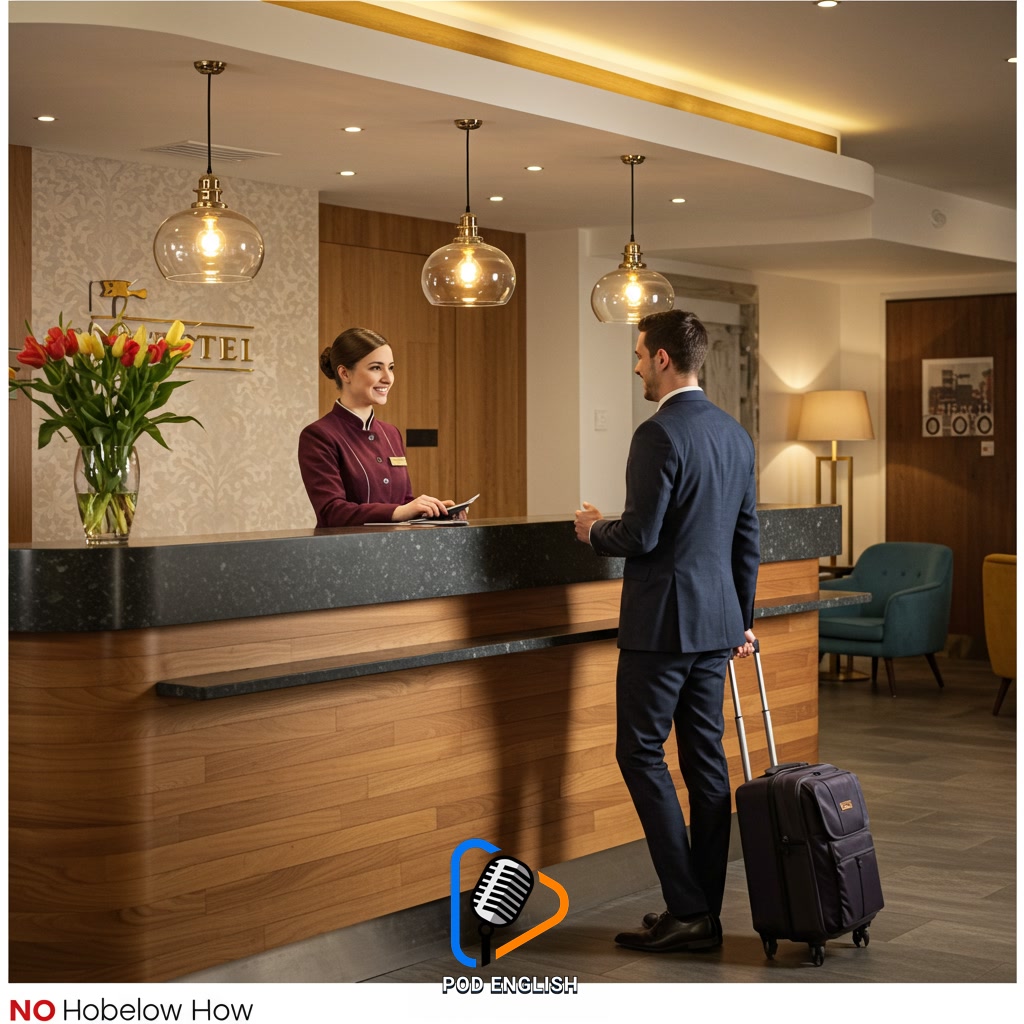
Handling Common Scenarios: Check-in, Services, and Requests
Section 4: Addressing Guest Issues and Complaints Professionally
Building on your ability to handle common interactions, this section tackles a crucial yet challenging aspect: addressing guest issues and complaints professionally. While anticipating and preventing problems is ideal, sometimes guests will experience difficulties or have concerns. Handling these situations effectively is vital for guest satisfaction and maintaining the establishment’s reputation. It requires patience, empathy, and clear communication. You will learn techniques for actively listening to the guest’s problem, expressing understanding, offering sincere apologies, and working towards a resolution calmly and politely. Mastering the specific English phrases for acknowledging the issue, reassuring the guest, and explaining the steps you will take is key to turning a negative situation into a positive outcome. This demonstrates professionalism and care, reinforcing the quality of service provided.
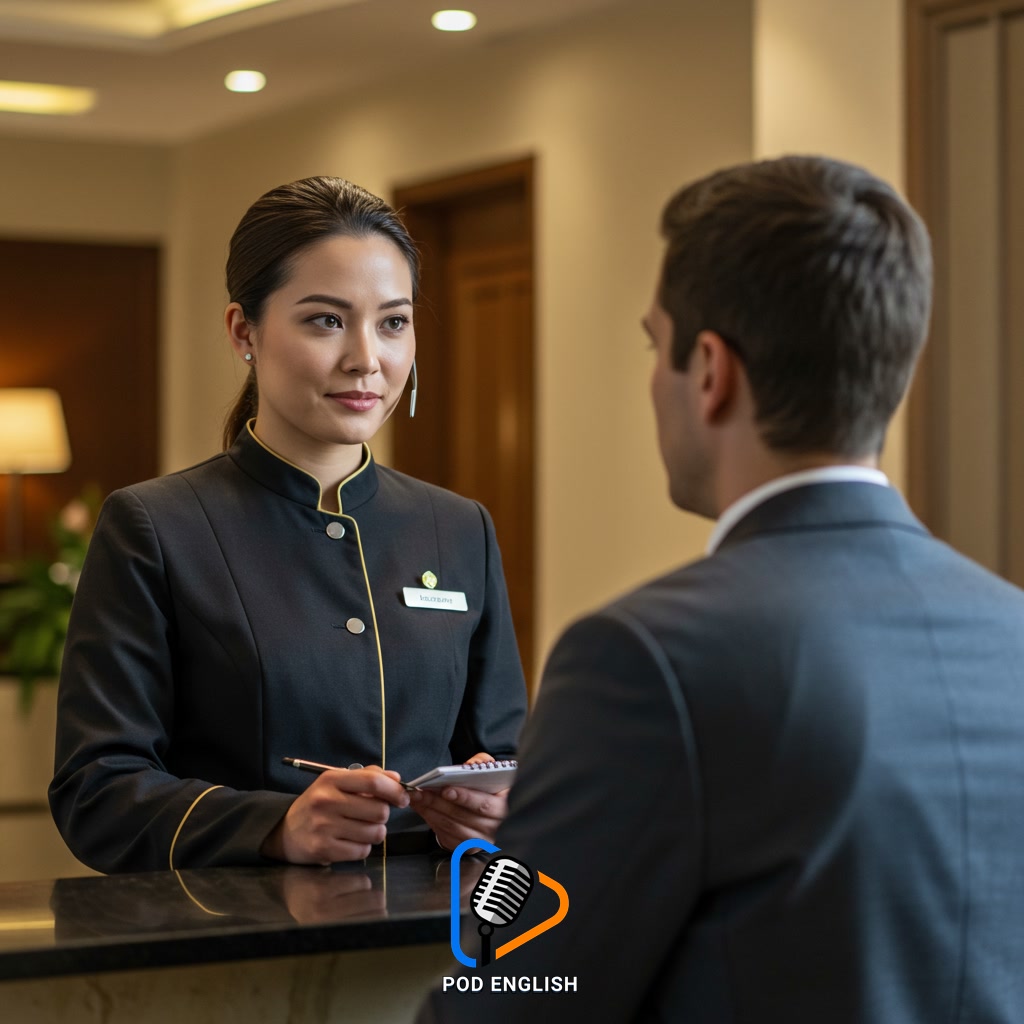
Addressing Guest Issues and Complaints Professionally
Section 5: Strategies for Learning and Improving Your English Skills
Building on your ability to handle common interactions and address guest issues, continuous improvement is essential for mastering English in hospitality. This section focuses on practical, actionable strategies you can integrate into your daily routine to enhance your language skills. Actively seek opportunities to listen to English, whether through guest interactions, colleagues, or dedicated learning resources like podcasts and videos. Regular speaking practice is crucial; don’t hesitate to rehearse phrases or describe situations. Embrace mistakes as valuable learning opportunities. Expand your vocabulary by noting down new words and expressions relevant to guest services and general conversation. Reading English materials, from simple articles to industry publications, can improve comprehension and fluency. Consistency is paramount; dedicate specific time slots for learning and practice. Explore language learning apps or online platforms tailored for English learners. Engaging in English conversations with colleagues fosters a supportive environment and builds confidence. Remember, consistent effort and varied practice methods are key to ongoing improvement.

Strategies for Learning and Improving Your English Skills
Section 6: Building Confidence to Speak English Naturally with Guests
Moving beyond simply handling routine transactions, developing the ability to speak English naturally and confidently is key to providing exceptional guest experiences. This section focuses on practical strategies to reduce anxiety and build fluency. Instead of translating word-for-word in your head, learn to think in English and respond spontaneously. Practice active listening to truly understand guest needs and respond empathetically. Embrace mistakes as part of the learning process and focus on clear communication rather than perfect grammar. By consistently applying these techniques and seeking opportunities to speak, you will gradually feel more comfortable and natural interacting with guests, enhancing both your confidence and the quality of service you provide.

Building Confidence to Speak English Naturally with Guests













